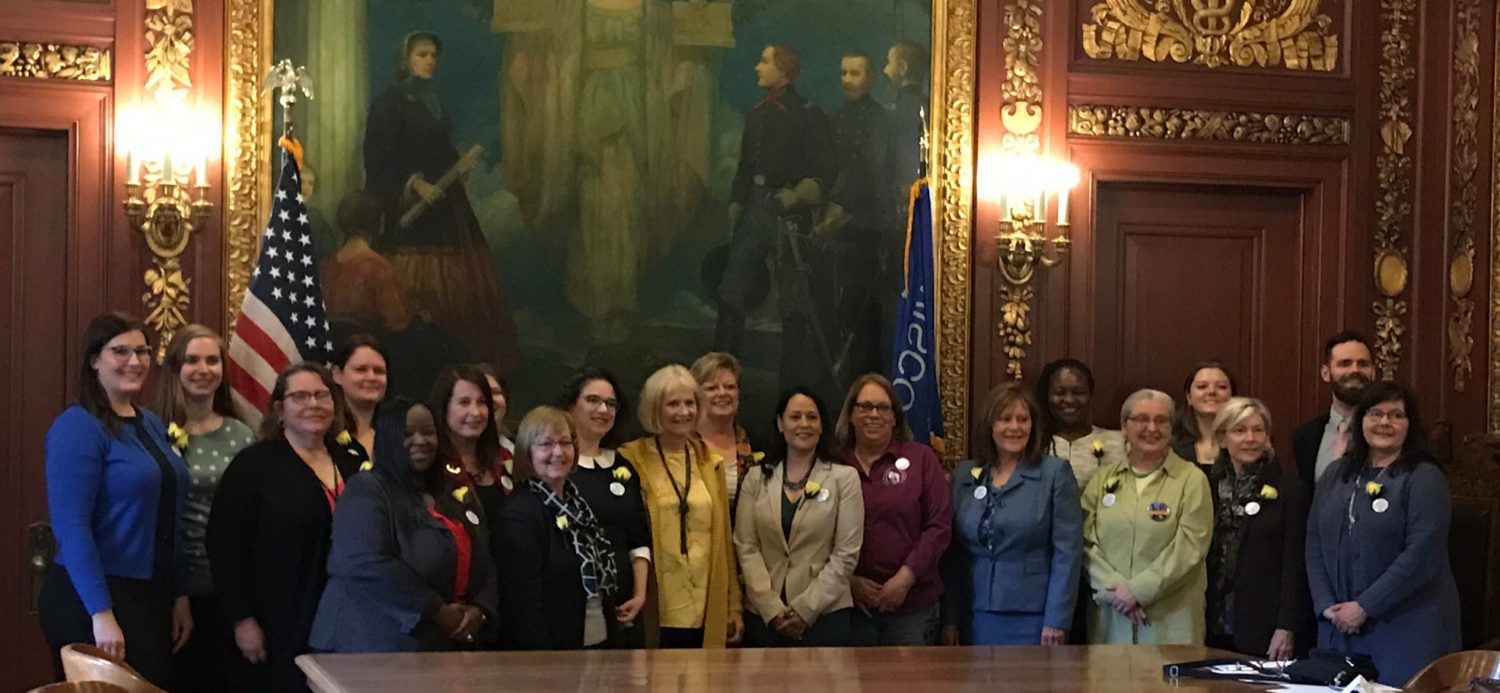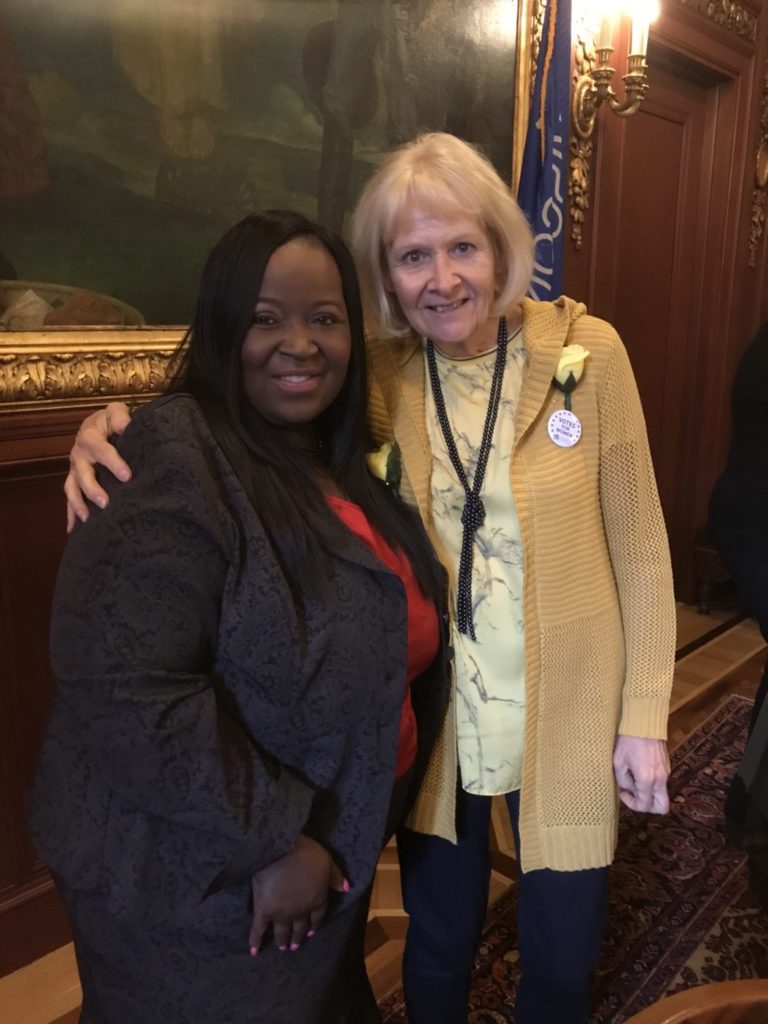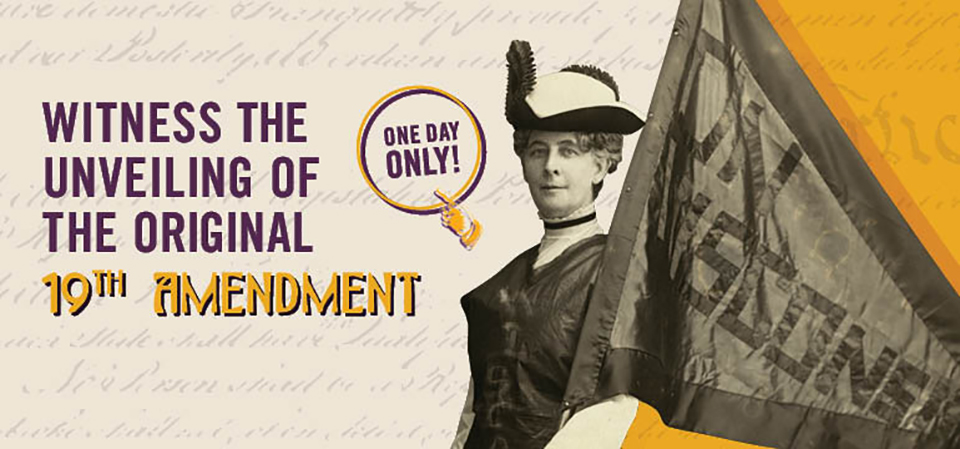
Way back in 1919, Wisconsin was the first state to ratify the 19th Amendment, giving women the right to vote. To honor the 100-year celebration of that historic event and to unveil the original 19th Amendment, a committee has planned and a special day – Women’s Suffrage Centennial Celebration – at the Wisconsin State Capitol Rotunda on Monday, June 10.
“This is huge. I can’t believe that it’s been 100 years,” Rep. Shelia Stubbs (D-Madison) tells Madison365 in an interview from her office at the Wisconsin State Capitol. “Wisconsin was the very first state. I think that’s pretty cool.”
In April, Governor Evers signed Executive Order 19 creating a committee, chaired by First Lady Kathy Evers, to celebrate the centennial anniversary of Wisconsin’s ratification of the 19th amendment.
“Gov. Evers issued an executive order at the press conference where all the women were invited,” Stubbs remembers. “So, I received my very first pen from the governor. Normally, you get a pen when you pass a bill. But at the executive order, he gave all the women a pen.”
The Women’s Suffrage Centennial Celebration committee has been charged with educating the public on the historical importance of the ratification of the 19th Amendment and the role in the fight for women’s suffrage. They have been planning and preparing educational activities and an educational toolkit for teachers and students across Wisconsin to learn more about the suffrage movement and the ratification of the 19th Amendment.

Stubbs says that it’s been an honor to be part of the planning committee that is made up of a non-partisan group that includes women legislators, women cabinet members, and two women former Lt. governors – one from each partisan caucus.
“It was cool to work on something in a non-partisan way in such a partisan environment. This was gender-driven more than party-driven,” Stubbs says. “I think it was really important for women to be lifted up in capacity. I think all of us have our own stories to tell about what has happened in our lives but we all are coming together as women in the Capitol on that day.
Ratification of the 19th Amendment was “the result of years of hard work by women across the country,” Stubbs says.
“Here in Wisconsin, the first state to ratify the 19th Amendment on June 10, 1919, generations of women worked tirelessly for the right to determine the destiny of their communities, especially through the vote,” she says. “But even when the 19th Amendment passed, black women could still not vote. But black women still stood beside white women and lobbied.”
For African-American women, the right to vote would not be secured until decades later.
“In fact, the right to vote today is still in jeopardy for many women as a wave of restrictions has rippled throughout the country,” Stubbs says. “It is especially important right now that our voices and stories are heard loud and clear. Let us use this moment to celebrate our past achievements but also to uplift the voices historically marginalized as we continue our march for justice.”
Stubbs says that she appreciates the fact that Gov. Evers spoke about this at the press conference.
“I think what was really important to me was how he articulated that not all women were given the right to vote,” Stubbs says. “To me, that means so much because he didn’t have to say that in his speech. But he took the time to share that and race is not always a comfortable conversation and people don’t always talk about disparities … but they do exist.
“I’ve been to a lot of press conferences where they would just gloss over these types of things,” Stubbs continues. “So I felt grateful that he brought it up and for not excluding an important part of the story.”

On Monday, June 10, starting at noon, the Women’s Suffrage Centennial Celebration will start with a welcome from Kathy Evers, the First Lady of Wisconsin, before the official unveiling of the 19th Amendment by Christian Overland. Rebecca Kleefisch, former Lt. Governor of the state of Wisconsin and executive director of the Women’s Suffrage Centennial Commission, will also speak along with Wisconsin Supreme Court Justice Ann Walsh Bradley.
Women members of the 104th Legislative Session will host a public reception from 1-3 p.m.
The event is free and open to the public. There will be a public viewing of original 19th amendment document, a tunic and small array of buttons and sashes.
“The Capitol will be open for extended hours for working families that can’t get off work during the day to see all of the great artifacts that will be available on display,” Stubbs says. “These are original artifacts from 100 years ago that we are going to be able to see for the first time.”
Stubbs says she wants the Women’s Suffrage Centennial Celebration to be a very diverse event.
“I am trying to invite as many people in the community as I can. On this day, I want the Capitol to reflect the people of this community,” she says. “I’m going to try and get this information out through my networks, dropping information off at our [black] churches. I would love to see people at this event who have never been to this Capitol. I want them to show up for this.
“It’s an issue that is really important to me, especially being the first African-American elected [from Dane County to the state Legislature], to bring in a population that hasn’t always engaged here. I want to let them know that this is their space, too,’ she continues. “Please come to this event. I really hope that for this celebration that when people come here it will shift the norm for what people see at the Capitol – that we see more people of color and more women.
“Personally, whenever I cast my vote, I remember that I am standing on the shoulders of so many of my ancestors and others that have endured hardships and sexism and racism and prejudice to give us all the opportunity to go to the polls and choose our candidate of my choice,” she adds. “So, I vote with great pride.”



